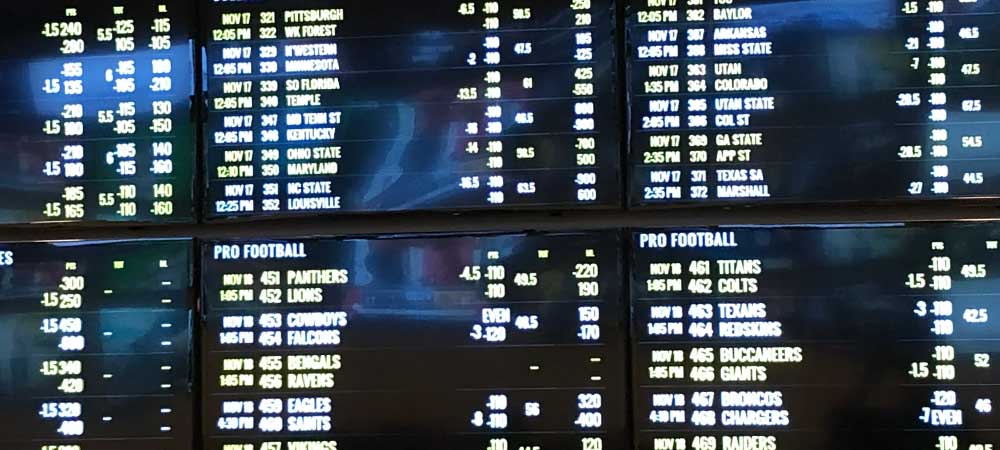 There is little room for doubt that tribal casinos like those operated by the Mississippi Band of Choctaw Indians are already one of the major players in the Magnolia State’s gambling spheres.
There is little room for doubt that tribal casinos like those operated by the Mississippi Band of Choctaw Indians are already one of the major players in the Magnolia State’s gambling spheres.
Once sports betting in Mississippi is allowed to really take off now that the US Supreme Court has decided to strike down the Professional and Amateur Sports Protection Act of 1992 (PASPA), tribal-run casinos will likely play an even larger role in defining the state’s position as the premier hub for gambling in the South. The Mississippi Gaming Commission’s executive director, Allen Godfrey, recently told national level media outlets that the state was “moving forward at a rapid rate” when it comes to getting sports betting up and running as soon as is conceivably possible but certainly in time for the start of the college football season in the fall. While actual comments from the tribal authorities in the Hospitality State have been sparse – even in the wake of the May 14 majority decision from the SCOTUS justices to overturn PASPA – we can only assume that the Mississippi Band of the Choctaw tribe is similarly looking at an accelerated time table to begin accepting sports action at their two Pearl River Resort casino properties, the Silver Star Casino and the Golden Moon Casino.
In that regard, the Mississippi Choctaws are very much like their counterparts in Connecticut, California and elsewhere, as nearly two dozen states around the nation are primed to start passing sports betting legalization and regulatory bills within a year, while seven states (counting Mississippi) already have such laws on the books. The difference between Mississippi’s situation and that of Connecticut – another state with a powerful tribal gambling presence – is that the Magnolia State’s proposed sports betting regulations, which were released just a few days after the US Supreme Court handed down its decision on PASPA, stipulate that only licensed casino operators can get permission to open a sportsbook. What that means in practice is that the Mississippi Band of Choctaw Indians, which have exclusive control over the Pearl River Resort near Philadelphia (the one in Neshoba County, not the one in Pennsylvania) will not have to contend with competing interests like the state lottery or even online operators for the right to accept bets on sporting events.
Contrast that with the ordeal facing the Mohegan Tribe in Connecticut. Tribal Chairman Kevin Brown (also known as Red Eagle) told the New York Times as much, saying that, despite the Mohegans’ gambling exclusivity rights, the tribe will still have to be willing to work with the state’s own Connecticut Lottery Corporation and Sportech, the purveyor of video poker and computerized slots. Both of those two entities are mentioned in the Constitution State’s proposed sports betting legislation as being able to apply for licensure and to start offering sports betting opportunities for their players, which is a bit of a consternation for tribal leaders used to having their way as far as land-based gambling goes.
Perhaps the only real challenge that Mississippi’s tribal casino operations will face in light of the proposed regulations lawmakers (and later the public) will be discussing for the next few weeks is the lack of a provision for true mobile gaming. While using a smartphone or tablet to place bets on sports is technically going to be possible at Mississippi casinos, under the proposed regs the use of such devices for placing wagers will be limited to the ground of the casino property itself. Even the parking garages and other similar areas are out of bounds – legislators critical of sports betting in the deeply socially conservative Magnolia State say leaving mobile betting off the table is an attempt to keep underage players away from sports betting as much as possible.
However, the other stipulations laid out in the proposed regulatory measures definitely seem to favor casino operators – particularly if they have a resort, golf courses, restaurants and entertainment venues attached. The Pearl River Resort has all those things and other amenities besides, plus the resort is centrally located in the state, has a great working relationship with regulators going back close to two decade and the facilities even had a nearly $80 million renovation in the last few years. If the goal was to get would be sports bettors actually in casinos – not necessarily because sports betting will be a huge money maker in its own right, but as a driver of increased foot traffic – then the Mississippi regulatory proposals seem to strike a decent balance and should achieve their apparent aims.
On a related note, Mississippi’s road to sports betting legalization was one of the more interesting storylines of what future historians on the subject may look back on and refer to as the “Decline of PASPA Era.” What the Hospitality State did in order to get sports betting legalized was merely to pass an updated law that allowed fantasy sports to enjoy a permitted status in the state, which up until 2017 had a state-level ban (that is, in addition to the blanket ban from PASPA) on sports betting.
The amended wagering law essentially removed the ban on sports wagering and authorized the state’s casinos to seek further licensure to offer sports betting. Mississippi thus avoided much of the media fanfare and all of the headache of clashing with pro sports league lobbyists that other states around the country had to deal with in the first half of 2018.
With all those factors in play, it is safe to say the Mississippi Choctaws are favorably positioned to take advantage of the growth of an industry for sports betting in Mississippi. That’s true even if the commercial gambling hubs in Tunica Resorts in the north and on the Gulf Coast to the south are likely to do much of the driving when it comes to deciding what the shape of sports betting looks like in the Deep South. Nevertheless, it certainly seems like the tribal gaming presence is ideally situated to play an important role in Mississippi’s future plans to expand into the sports wagering segment if everything shapes up legislatively the way it looks like it will.

